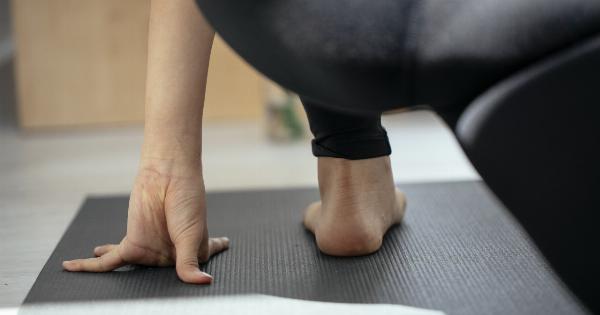Discovering that your partner may be cheating on you can be an emotionally devastating experience. It’s normal to feel a range of emotions such as anger, betrayal, sadness, and confusion.
However, it is important to approach the situation with a level head and take the necessary steps to address the issue. Here are some steps to consider when you suspect your partner is cheating.
1. Gather Your Thoughts and Emotions
Before confronting your partner, it is crucial to first gather your thoughts and emotions. Take some time to process what you are feeling and ensure that you are in a calm and collected state of mind.
Reacting impulsively or out of anger may not lead to a productive conversation and could potentially worsen the situation.
2. Look for Evidence
If you have suspicions that your partner may be cheating, it is important to look for evidence before jumping to conclusions.
Keep an eye out for subtle changes in their behavior, such as increased secrecy, sudden changes in their schedule, or unexplained expenses. However, it is essential to remember that these signs alone may not necessarily confirm infidelity.
3. Communicate Openly and Honestly
Once you have gathered your thoughts and have some evidence to support your suspicions, it’s time to communicate with your partner. Schedule a time to talk when both of you are calm and have privacy.
Approach the conversation with honesty and express your concerns without accusations. Use “I” statements to explain how their actions or behavior have made you feel, fostering a more open and honest dialogue.
4. Seek Couples Therapy
If you’re struggling to address the issue on your own, it can be beneficial to seek the help of a professional couples therapist.
Couples therapy can provide a safe space for both partners to express their feelings and concerns while working towards rebuilding trust and improving communication. A therapist can guide you through the healing process and help you understand the root causes of the infidelity.
5. Take Time for Self-Care
Dealing with the suspicion of infidelity can take a toll on your emotional well-being. It is essential to prioritize self-care during this challenging time.
Engage in activities that bring you joy and help you relax, such as exercise, meditation, spending time with loved ones, or pursuing hobbies. Taking care of yourself will provide you the strength and resilience you need to navigate through this difficult situation.
6. Assess the Relationship
While infidelity is undoubtedly a breach of trust, it is crucial to assess the overall health of your relationship. Consider whether the relationship is built on a foundation of mutual respect, trust, and love.
Determine if both partners are willing to work towards rebuilding trust and repairing the damage caused. Reflect on whether you see a future together and if the relationship is worth fighting for.
7. Establish Boundaries
If you decide to stay in the relationship after infidelity, it is essential to establish clear boundaries moving forward. Both partners should openly discuss expectations and boundaries to prevent future misunderstandings.
Transparency is key in rebuilding trust, so ensure that both of you are comfortable sharing information and being open about your whereabouts.
8. Utilize Support Systems
Dealing with the aftermath of infidelity can be an isolating and lonely experience. Reach out to your support system, whether it’s close friends, family, or a therapist, to gain perspective and emotional support.
Surrounding yourself with people who care about you can help you process your emotions and provide guidance as you navigate through the difficult decisions.
9. Give It Time
Rebuilding trust after infidelity takes time and patience. It is essential to remember that healing is not a linear process and that progress may be slow. Allow yourself and your partner time to heal individually and as a couple.
Be patient and understanding with each other as you work towards rebuilding the relationship.
10. Consider Professional Help
If, despite your best efforts, trust cannot be rebuilt or the relationship becomes toxic, it may be necessary to consider professional help in the form of individual therapy or counseling.
A therapist can help you gain clarity and decide on the best course of action for your emotional well-being and future.






























